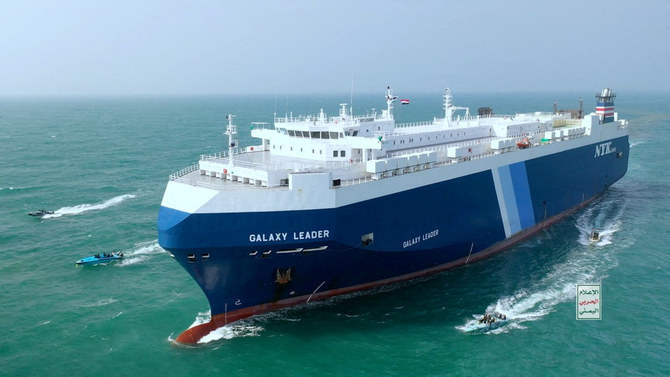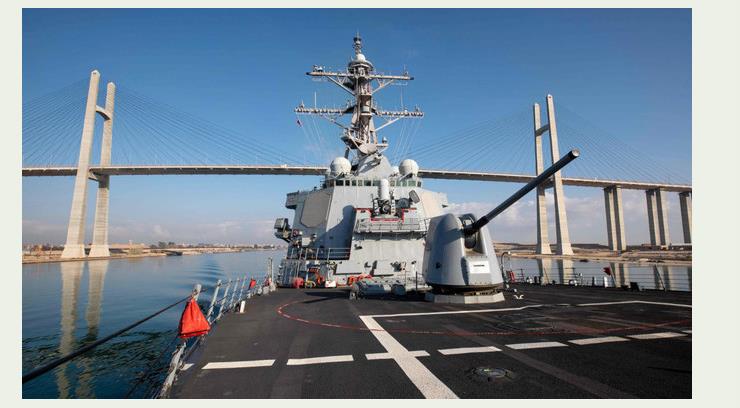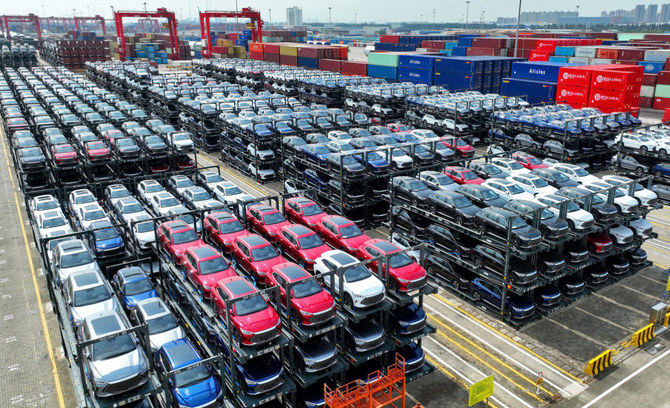
“It is deplorable that innocent seafarers are being attacked while simply performing their jobs, vital jobs which keep the world warm, fed, and clothed,” the world’s top shipping associations said
“These attacks must stop now”
LONDON: Urgent action must be taken in the Red Sea to stop attacks on merchant shipping by Yemen’s Houthis, leading industry groups said on Wednesday, after the sinking of a second ship.
Iran-aligned Houthi militants first launched drone and missile strikes on the important trade route in November in what they say is solidarity with Palestinians in Gaza. In more than 70 attacks, they have also seized one vessel and its crew and killed at least three seafarers.
“It is deplorable that innocent seafarers are being attacked while simply performing their jobs, vital jobs which keep the world warm, fed, and clothed,” the world’s top shipping associations said in a joint statement.
“These attacks must stop now. We call for states with influence in the region to safeguard our innocent seafarers and for the swift de-escalation of the situation in the Red Sea.”
The Greek-owned Tutor coal carrier attacked by Yemen’s Houthi militants in the Red Sea last week has sunk, salvagers confirmed on Wednesday.
The vessel was struck with missiles and an explosive-laden remote-controlled boat, according to sources.
International naval forces have been deployed to provide mainly defensive support for ships still sailing through the Red Sea, but the attacks have increased significantly.
Insurance industry sources said on Wednesday there was also mounting concern over the use of attack drone boats by the Houthis.
“They are harder to defend against and potentially more lethal as they strike the waterline,” one industry source said.
“Missiles have — to date — mainly caused deck and superstructure damage (to ships).”
There have been 10 Houthi strikes so far in June compared with five in May, said Munro Anderson, head of operations at marine war risk and insurance specialist Vessel Protect, part of Pen Underwriting. “The first successful use of an unmanned surface vessel represents a new challenge for commercial shipping within an already complex environment,” he added.
Insurance industry sources said that additional war risk premiums, paid when vessels sail through the Red Sea, had hovered close to 0.7 percent of the value of a ship in recent days from around 1 percent earlier this year.
They added that with a second ship sinking and the losses likely to emerge from that, rates are likely to firm up, adding hundreds of thousands of dollars of extra costs to every voyage.
Ships must divert around southern Africa, which is the best way to protect seafarers, said Stephen Cotton, General Secretary with the International Transport Workers’ Federation, the leading seafarer’s union.
“We would also welcome proper escorts and the shielding of ships by naval forces, which would reduce the risks of ships being hit,” he added.












